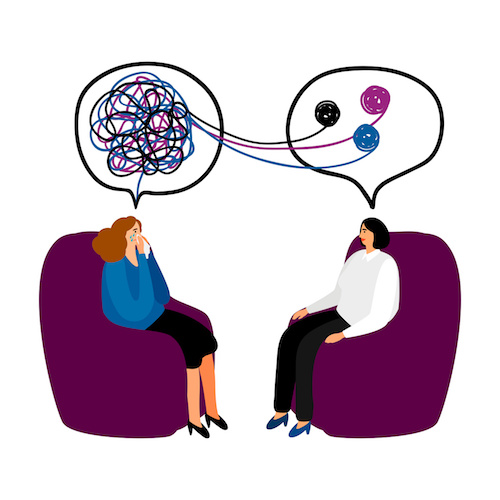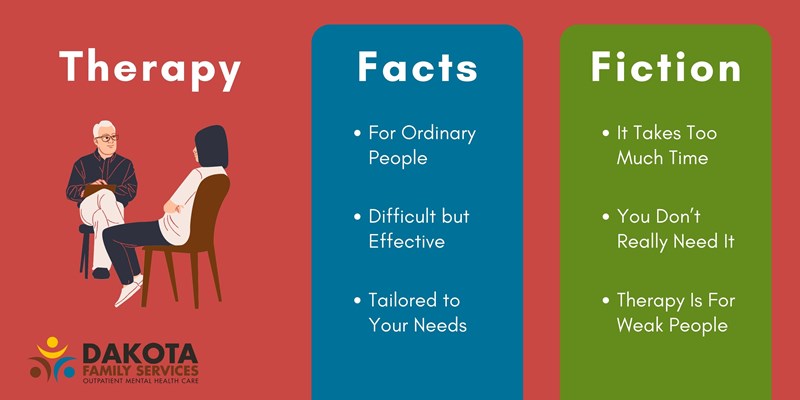The Value of Mental Health: a Deep Study Counseling, Treatment, and Their Benefits
Psychological wellness considerably shapes private well-being, impacting actions, emotions, and ideas. Counseling and treatment offer as important avenues for healing and personal growth. They provide structured assistance, aiding individuals browse life's challenges. Yet, numerous stay not aware of the specific sorts of treatment readily available and their one-of-a-kind benefits. Recognizing these aspects is important for any person thinking about professional mental wellness assistance. What complies with may illuminate courses to durability and satisfaction that several overlook.
Understanding Mental Health And Wellness and Its Effect
Psychological health and wellness is typically forgotten, it plays a crucial role in overall well-being and day-to-day performance - Cognitive Behavioural Therapy. It encompasses emotional, emotional, and social elements that affect exactly how individuals assume, really feel, and behave. A person's psychological health straight impacts their ability to handle tension, connect to others, and choose. Poor mental health can lead to various concerns, including anxiety, depression, and problem in maintaining relationships, all of which can impede expert and individual growth.Furthermore, psychological wellness has significant implications for physical health and wellness. Chronic tension and neglected psychological conditions can contribute to numerous physical ailments, such as heart illness and damaged immune feedbacks. On the other hand, positive psychological wellness fosters resilience, enabling individuals to cope with life's challenges effectively. Recognizing mental wellness's value is vital for fostering helpful environments that promote psychological wellness, thereby enhancing the lifestyle for areas and individuals alike
The Different Kinds Of Therapy and Treatment
In the domain name of mental wellness, different therapy and treatment kinds deal with diverse requirements. Individual counseling techniques concentrate on individual concerns via individually sessions, while group therapy dynamics foster shared experiences and assistance amongst participants. Understanding these methods is necessary for selecting the ideal intervention for different challenges.
Specific Counseling Methods
Countless specific therapy strategies exist, each made to address specific mental health and wellness problems and accommodate differing customer demands. Cognitive Behavior Modification (CBT) focuses on determining and altering unfavorable thought patterns, while Psychodynamic Treatment checks out previous experiences and unconscious processes. Humanistic Therapy emphasizes individual development and self-actualization, fostering an encouraging setting. Social Treatment (IPT) targets partnership issues and communication patterns to boost emotional well-being. Additionally, Approval and Dedication Therapy (ACT) motivates customers to approve their thoughts and sensations while committing to personal worths. Each technique provides unique strategies and viewpoints, enabling specialists to customize their methods to the individual, thus boosting the therapeutic experience and promoting psychological wellness recuperation.
Group Treatment Characteristics
Group treatment characteristics include numerous restorative strategies that take advantage of the power of interpersonal connections and common experiences. This form of treatment usually includes varied groups, promoting a secure atmosphere for participants to express thoughts and feelings. Key kinds of team treatment include support system, which provide psychological assistance; process-oriented groups, concentrating on interpersonal interactions; and psychoeducational teams, focused on passing on expertise concerning psychological health and wellness concerns. The dynamics within these teams can boost self-awareness, as participants frequently assess their actions in connection with others. In addition, group therapy promotes a feeling of belonging, lowering feelings of isolation. Through shared narratives and collective analytical, individuals can establish coping methods and get understandings, eventually contributing to individual development and recovery.
The Function of Therapy in Mental Health
Counseling plays an important role in psychological wellness by providing different methods customized to specific demands. These techniques give expert advice that can bring about substantial improvements in psychological health. Recognizing the different sorts of counseling can aid individuals make informed choices concerning their psychological healthcare.

Sorts Of Counseling Approaches
While different counseling techniques exist, each offers special approaches and understandings right into mental wellness therapy - Marriage Counselling. Amongst the most prominent are cognitive-behavioral therapy (CBT), which concentrates on altering negative thought patterns; psychodynamic therapy, which explores subconscious procedures and childhood experiences; and humanistic methods, emphasizing personal growth and self-actualization. Additionally, solution-focused brief therapy prioritizes discovering services in the existing rather than diving right into troubles. Team treatment fosters neighborhood and shared experiences, while household treatment addresses relational characteristics within domestic frameworks. Each approach satisfies various demands, straightening with private choices, concerns, and restorative goals. Comprehending these techniques assists clients make informed choices regarding you can try these out their psychological wellness trip and advertises efficient treatment tailored to their unique situations
Advantages of Specialist Guidance
Countless individuals take advantage of professional guidance in managing their psychological wellness obstacles. Therapy provides a safe space for clients to discover their thoughts and feelings without judgment. This therapeutic setting cultivates self-awareness, enabling people to recognize patterns in their behavior and develop much healthier coping techniques. Professional advice likewise provides accessibility to evidence-based techniques that can minimize symptoms of anxiousness, depression, and various other psychological health problems. Counselors can assist in establishing reasonable objectives and provide assistance in achieving them, enhancing general health. The collective relationship between therapist and customer is crucial, as it promotes liability and encourages individual development. Ultimately, expert advice plays a crucial duty in steering mental wellness journeys, resulting in improved psychological strength and life complete satisfaction.
Advantages of Treatment: Recovery and Development

Just how to Select the Right Therapist or Counselor
How can one navigate the commonly overwhelming procedure of picking the best therapist or therapist? Identifying personal requirements is crucial; individuals must consider their details concerns, whether clinical depression, anxiousness, or partnership difficulties. It is beneficial to study different restorative strategies, such as cognitive-behavioral treatment or psychodynamic treatment, to locate a suitable match.Next, possible clients ought to seek referrals from relied on resources or use on-line directory sites. It is crucial to evaluate specialists' credentials, including their education and learning, licensing, and areas of specialization. Scheduling initial assessments can help gauge compatibility, enabling people to examine communication styles and personal comfort.Finally, logistical factors, such as area, accessibility, and browse around this web-site fees, must additionally be thought about. By attentively considering these aspects, one can make a notified choice, inevitably promoting a therapeutic partnership that supports mental wellness and individual growth.
Conquering Preconception: Welcoming Mental Wellness Support
While societal perspectives towards mental health and wellness have advanced, preconception still presents a significant obstacle for numerous looking for assistance. This preconception frequently materializes as misunderstandings bordering mental disease, leading people to really feel shame or anxiety concerning their battles. Many individuals think twice to seek counseling or treatment as a result of fears regarding being judged or labeled. Conquering this stigma is fundamental for promoting a helpful atmosphere where individuals can honestly review their mental health needs.Communities and organizations play an essential duty in this transformation by promoting understanding and education regarding mental wellness concerns. Efforts that highlight personal tales can humanize these experiences, motivating others to seek aid without fear. As approval expands, individuals may feel more equipped to welcome psychological health support, identifying it as a necessary facet of general health. By dismantling stigma, culture can grow a society of understanding, concern, and positive psychological healthcare.
Methods for Keeping Psychological Wellness Outside of Treatment
Therapy supplies beneficial assistance, maintaining mental well-being outside of sessions is similarly essential. Individuals can execute numerous methods to sustain their mental health. Regular exercise plays a vital function, as workout promotes the release i thought about this of endorphins, which improve state of mind. Additionally, a balanced diet regimen abundant in nutrients can substantially impact psychological security and power levels.Practicing mindfulness and meditation helps individuals handle stress and develop better self-awareness. Developing a consistent rest regimen is likewise basic, as high quality rest is essential for cognitive function and psychological regulation.Engaging in social tasks cultivates connection and reduces feelings of isolation. Seeking hobbies or rate of interests can offer a creative electrical outlet and increase self-esteem. Finally, practicing and setting reasonable goals self-compassion allows people to grow strength. By incorporating these techniques into every day life, individuals can properly support their mental well-being beyond therapy sessions.
Regularly Asked Concerns

How Can I Tell if I Required Therapy?

Determining the requirement for treatment usually includes recognizing consistent sensations of sadness, anxiousness, or frustrating stress and anxiety. If daily working comes to be difficult or coping mechanisms fail, looking for specialist support might be a useful progression.
What Should I Anticipate in My First Treatment Session?
In the initial therapy session, individuals can anticipate an introduction, discussion of their factors for seeking assistance, and an overview of the therapist's strategy, producing a foundation for future conversations and developing convenience in the therapeutic space.
Are Online Therapy Procedure as Effective as In-Person Ones?
Study indicates that online therapy sessions can be as effective as in-person ones. Variables such as the therapist's credentials, client engagement, and the restorative connection considerably affect outcomes, regardless of the medium used.
Can Therapy Aid With Relationship Issues?
Treatment can aid individuals in addressing partnership concerns by supplying tools for communication, understanding feelings, and settling problems. Marriage Counselling. It promotes much healthier characteristics and motivates individual growth, ultimately cultivating stronger, a lot more fulfilling links between partners
The Length Of Time Does Treatment Typically Last?
Therapy period differs significantly based on specific demands and goals. Normally, sessions may last from a few weeks to several months, with some people participating in ongoing treatment to attend to long-lasting problems and individual growth. Cognitive Behavior Therapy (CBT) focuses on identifying and transforming unfavorable thought patterns, while Psychodynamic Treatment checks out unconscious procedures and past experiences. Key types of team therapy consist of support groups, which supply emotional assistance; process-oriented groups, focusing on social communications; and psychoeducational groups, intended at presenting understanding about mental health problems. Among the most noticeable are cognitive-behavioral treatment (CBT), which concentrates on changing negative thought patterns; psychodynamic therapy, which discovers unconscious processes and childhood experiences; and humanistic techniques, highlighting individual growth and self-actualization. Group treatment fosters community and shared experiences, while household treatment addresses relational dynamics within familial structures. It is advantageous to study various restorative approaches, such as cognitive-behavioral therapy or psychodynamic therapy, to discover an ideal match.Next, potential clients should look for referrals from trusted resources or utilize on the internet directories.